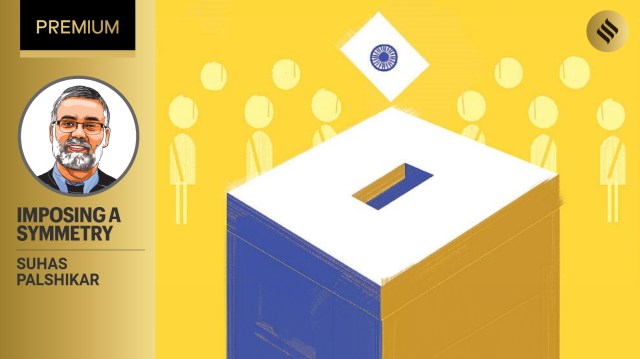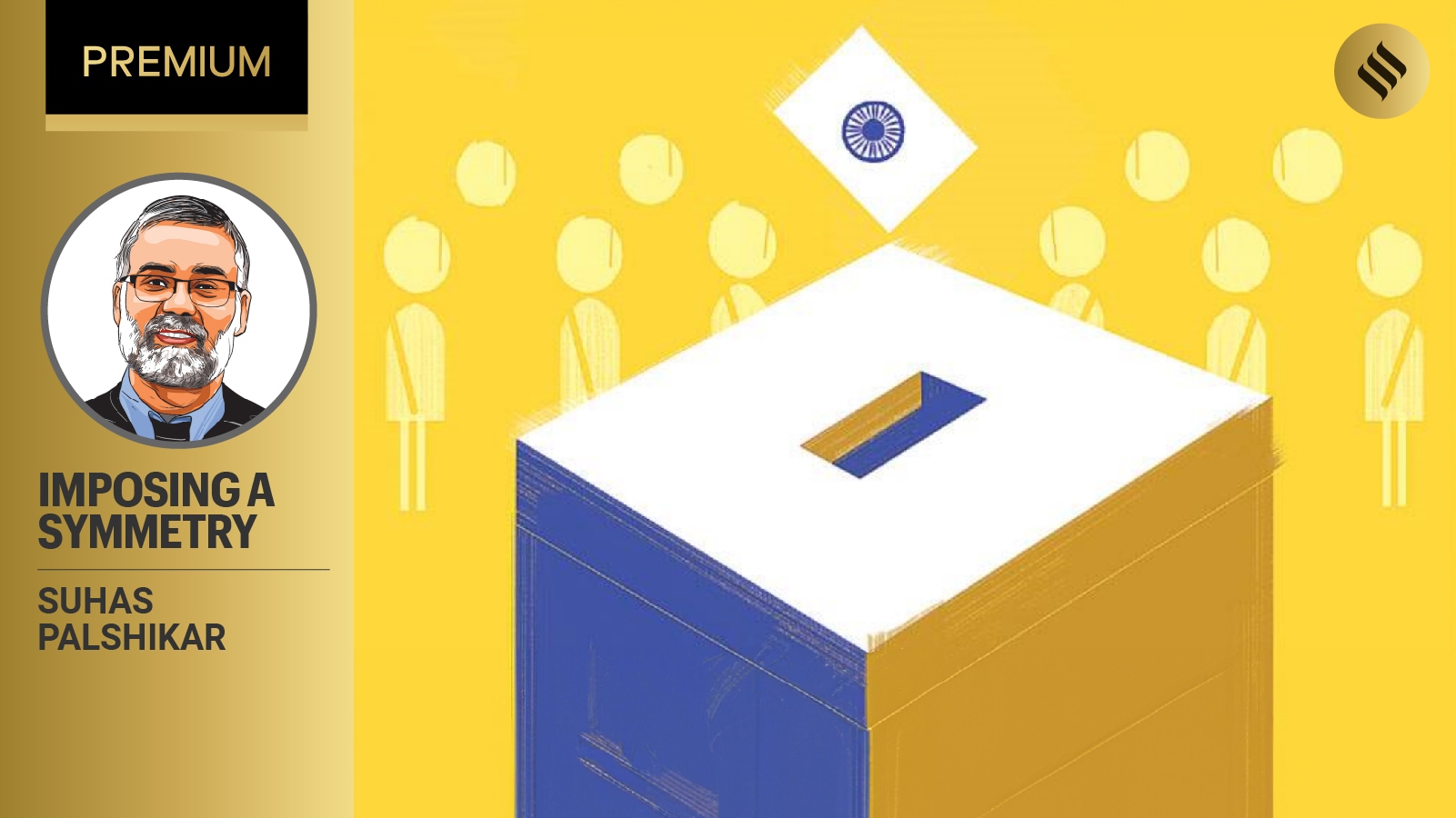
For some time now, but particularly during the campaign for the Lok Sabha elections, it was argued that the BJP will change the Constitution. This writer had held the view that the BJP might not do that — not because it had any real faith in the Constitution, but because it had developed a technique of bypassing the Constitution, as in the case of determining what is a “money bill” or in the case of overcoming the Supreme Court ruling on appointment of Election Commissioners. The BJP government has done greater damage over the past decade through its subterfuge rather than through upfront changes to the Constitution. But besides practising various methods to downgrade constitutional morality, the current government now seems poised to deal a more drastic blow to the Constitution.
This new assault has come in the form of the Prime Minister’s pet project, One Nation, One Election. It would be a waste of the diligent reader’s time to repeat oneself (‘Polls Apart’, IE, November 24, 2017), but as the government gears up to push the plan, it is necessary to summarise the earlier argument and explore the larger implications beyond simultaneity of elections.
The implementation of the plan will involve “changes” in the Constitution in at least three key areas. These will be presented as amendments but their scope will be far wider. The first pertains to the parliamentary form of the government. In whatever form the idea of simultaneous election is sought to be implemented, it will inevitably signal a death blow to the parliamentary system. While we await more specific and detailed legislative proposals, they will certainly involve an arrangement whereby the right of the legislature to bring no-confidence motions will be curtailed. It is also not clear if the chief executive will continue to have the power to dissolve the legislature and force an early election.
The second major attack will be in the arena of states’ autonomy: That’s the only way assemblies will have fixed elections along with the Lok Sabha. The much-touted 1952-1967 precedence of so-called simultaneous election is a classic instance of misleading public opinion. During that phase, states were not forced or required to have elections simultaneously with the Lok Sabha. But the elections coincided because after the passage of the Constitution, all elections were held together. Subsequently, there was relative political stability as a by-product of single-party dominance. Therefore, by another accident of that party system, governments in the state did not fall due to no-confidence motions or party factionalism.
But now, it is being mandated that all states must have an election only with the Lok Sabha (or at a pre-determined) “election event” to be held twice every five years. Indeed, this determination to hold elections on a specified date, come what may, looks so neat and American. As an aside, a government that has failed to hold the decennial Census long after the pandemic subsided, should not strive for such a pre-determined calendar. That apart, this calendar precludes any federal tweaking to the election schedule. Thus, by officially presidentialising the election, the current proposal runs the risk of jeopardising the federal structure.
Thirdly, in this enthusiasm to have a neatness to the election cycle, the deeper constitutional promise of representation is pushed to a secondary place. As mentioned above, representatives will not be empowered to unseat the executive and hence, they would no longer be the voters’ agents to decide whether the executive enjoys trust or not. Besides, if election events are fixed in a five-year cycle, there is every possibility that at times, voters will have no representatives — either state assemblies will be dissolved or/and even the national representatives may have run out of their terms. The ideas of representative government and representation will thus be compromised.
In the months to come, more specific proposals may unfold and enable more informed debates, but the unavoidable message as of now is that this government does not care if key aspects of the Constitution have to be changed in a fashion that hurts its very identity. The willingness of the regime to undertake this overhaul should alert us.
Such an overhaul sets two processes in motion. First, it delegitimises the idea that there is anything fundamental or sacrosanct about the Constitution. Already, it is being argued that the previous governments made so many amendments and hence, a few more won’t matter. This argument seeks to trivialise the entire history of legislative/executive confrontations with Courts on the question of the scope and meaning of the term “amendment”. The basic structure doctrine is already under attack. So, the older arguments about people’s representatives being supreme and the Constitution being only an instrument of the present generation are bound to surface.
The second process that will be unleashed will be to prioritise neatness, uniformity and sameness over the constitutional skills to negotiate complexities. Even as India’s federal experiment began to be appreciated for its pragmatic asymmetry globally, India seems set to reject that very feature. With the attack on Article 370, the process of transforming the asymmetry into a formal symmetry has commenced. With the push over the language issue and the de facto erosion of states’ autonomy through agencies of the Union government, federal pluralism is already sidelined. Now, uniformity and a rejection of complicating diversity of formal and institutional mechanisms will be popularised as an instrument to undermine the essence of the Constitution. Thus, over and above the fundamental flaws in the proposal for simultaneous elections, the most critical danger it portends is to transform the democratic logic into a logic of “oneness”.
Debates about changing the Constitution have so far centred around the question of Hindu rashtra. While I have argued that this change is less important in view of the de facto operationalisation of Hindu rashtra, the long-term politics of constitutional changes for purposes of simultaneous elections can surely open the doors to more systematically infusing the Constitution with “our culture”, our “ancient ideas” and aspirations shaped by those ideas. This writer had once described the idea of simultaneous elections as an attempt at designing to distort. It seems that there is a larger design to distort not just the election system, but the Constitution itself.
The writer, based in Pune, taught Political Science



